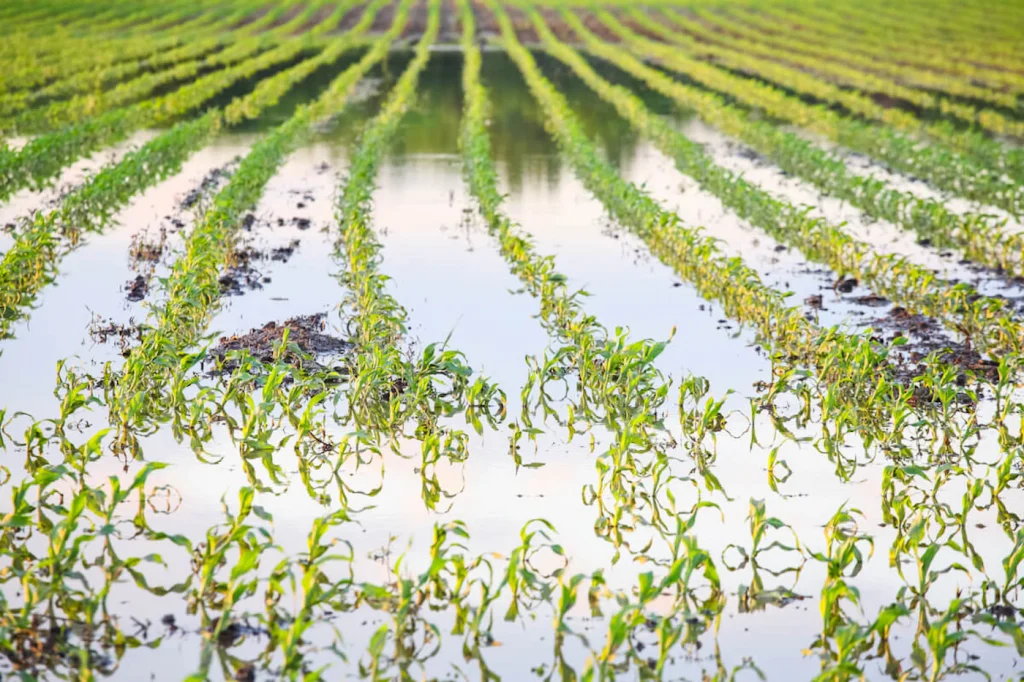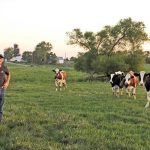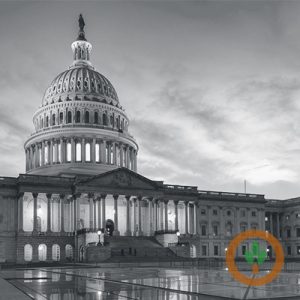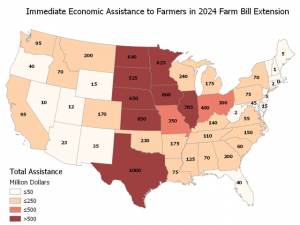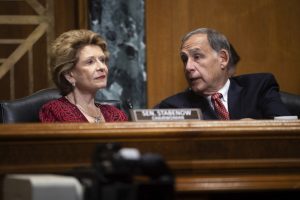
The 3rd District Republican, who sits on the House Agriculture Committee, has little to say about slashing support for the crucial legislation that impacts farmers, consumers, and the environment.
Third District Congressman Derrick Van Orden (R-Prairie du Chien) landed a plum assignment when he took his seat in the US House earlier this year: a spot on the powerful House Agriculture Committee. But his relative silence in the face of a proposal for massive cuts to the next Farm Bill is getting increased attention.
“Wisconsin’s farmers need a champion more than ever,” dairy farmer Darin Von Ruden, president of the Wisconsin Farmers Union, wrote in a CapTimes opinion column. “But so far Van Orden has failed to deliver anything other than empty slogans.”
Von Ruden criticized Van Orden for not proposing any amendments in the Farm Bill designed to help small farms stay healthy in the face of corporate practices that hurt prices for producers and consumers.
The Farm Bill is a major package of legislation renewed every five years that affects everything from school lunches and food assistance to market rules and environmental programs. There are also provisions about rural economic development, exports of American food, research, and food safety. Its size and scope are designed to encourage bipartisanship and cooperation between both rural and urban lawmakers.
But Republicans are calling for the removal of $50 billion that helps farmers and ranchers take part in two popular voluntary conservation projects: the Conservation Stewardship Program and the Environmental Quality Incentives Program. These programs teach and incorporate practices on working farmland that protect water quality, soil health and animal habitats—and make farmland more resilient to the extreme storms and droughts that have come more frequently due to a changing climate.
There are also cuts proposed for rural economic development programs and the Supplemental Nutrition Assistance Program (SNAP), the latter of which not only prevents hunger among America’s low-income families, but serves a dual-purpose as farm support because the funds are used to purchase food.
A public opinion poll provided to the political media outlet The Hill shows conservation and climate programs are extremely popular. When voters in six leading agricultural states were asked about repurposing those funds for non-climate use, they opposed it by a 3-to-1 margin—and even Republican voters opposed it by a 2-to-1 margin.
“Four out of five poll respondents said they supported incentives and voluntary programs for farmers and other landowners,” The Hill reported, “to conserve agricultural lands, wildlife habitat, wetlands and other natural areas.”
Some of the money Republicans want to cut came through President Joe Biden’s Inflation Reduction Act (IRA). Politico was first to report on a letter signed by every Democratic member of the Agriculture Committee opposing the clawback of IRA funds for conservation and climate because “it would ultimately be a disservice to American farmers should these funds go elsewhere.”
“The climate-smart programs in the IRA are supported by more than 1,700 farm groups, companies, environmental advocates, leading economists, local elected officials and municipalities, and trade associations,” the Democrats wrote.
“Wisconsin farmers and producers need a new Farm Bill and stability to be successful, but Congressman Derrick Van Orden doesn’t seem interested in helping them,” said Meghan Roh of the progressive advocacy group Opportunity Wisconsin. “Passing a new Farm Bill that supports family farmers in Wisconsin is essential for supporting our economy and giving working families the opportunity to succeed. It’s time for Rep. Van Orden to start fighting for Wisconsin’s farm families.”
Van Orden has been overseas for several days, leaving for Israel late last week for a trip he described as a fact-finding effort. He was the only Republican to miss Tuesday’s vote that chose Rep. Mike Johnson (R-Louisiana) as the new Speaker of the House.
